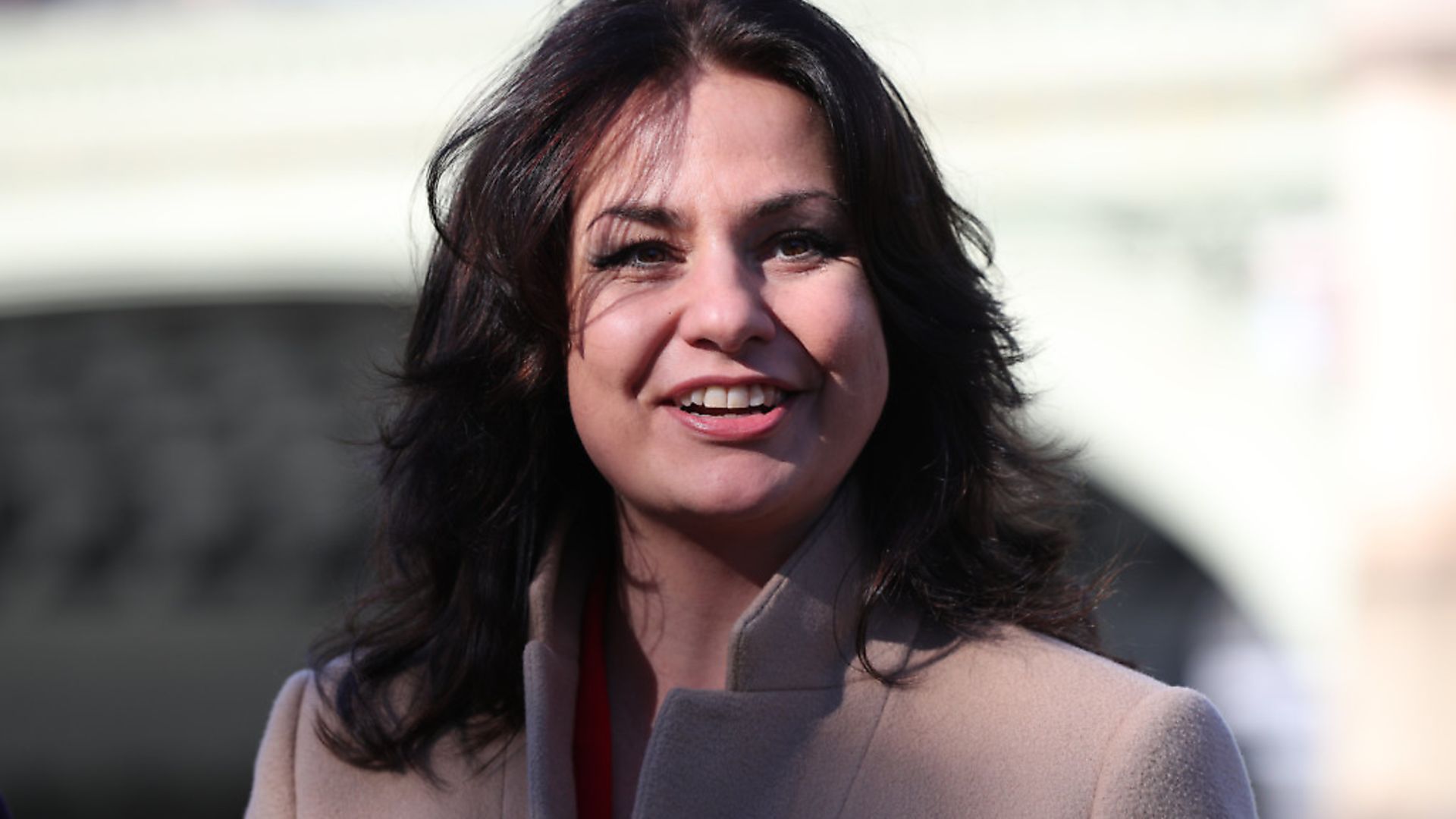
Heidi Allen has suggested that the chancellor is interested in her ‘Unite to Remain’ initiative, which hopes to persuade anti-Brexit parties to collaborate in support of Remain candidates in a general election.
The initiative will follow the blueprint of the Brecon and Radnorshire by-election, where Plaid Cymru and the Greens have stood down their candidates in favour of the Liberal Democrats’ Jane Dodds, in order not to split the Remain vote.
WATCH: Heidi Allen announces cross-party project to return more Remain MPs to parliamentUnite to Remain’s tactic is to replicate this nationwide with the collaboration of the Greens, Plaid Cymru, Lib Dems, and the Social Democratic and Labour Party (SDLP). But Allen told the New European that this would not include Remain-sympathetic Tories “while they stay propping up a Tory government”. Yet, she said, Hammond was rumoured to be interested. “This is huge,” she added.
Hammond has criticised the spending plans of both of the pro-Brexit prospective leaders, and has suggested the need for a second referendum. He does not expect to be chancellor after the leadership race is concluded, and has also hinted that, as a backbencher, he would defy the Tory whip to vote against a no-deal Brexit.
WATCH: Philip Hammond hints he might vote with Labour against a no-deal BrexitIf Hammond stood as an independent in his constituency of Runnymede and Weybridge, he is likely to find the support of Unite to Remain, which is currently researching which Remain candidates to throw its logistical and financial support behind in seats nationwide.
Allen quit the Conservative party over her pro-EU views to set up, and eventually lead, the party that became the Change UK with ten fellow anti-Brexit Labour and Tory MPs. The new party – which is now called the Independent Group for Change – fielded several candidates in the EU elections but were criticised for not collaborating enough with other Remain parties, and did not win any seats. Allen left the party at this point to become an independent.
She has now told the New European that she set up Unite to Remain because she couldn’t “sit back and do nothing” while people wait for Labour to take a solidly pro-Remain position in opposition. “I lost count of the number of people emailing, in person, on social media, during the EU election who were so frustrated, [asking] ‘why can’t the Remain parties work together?’,” she said. “It’s utter desperation, and we can’t make that mistake again.”
Allen said that she has been “pleasantly surprised” by the response from Remain parties so far – at least in concept. “The appetite has been very good, very positive conversations so far,” she said.
But the concept of collaboration is a lot easier than actually agreeing to stand down a candidate, especially for smaller parties. It’s why, she said, it’s so crucial that she remain as an independent as chair of the initiative during that process.
“There’s two parts to this process,” she said, saying they would be looking at polling data and the results of the EU and council elections. “One is the cold analysis: what does the data tell us?”
After this, there will be recommendations for candidates for Unite to Remain parties to support – standing their own candidate down if necessary. Allen acknowedged how difficult this will be for parties. “There’ll be seats where it’s more subtle I suppose, and that’s where the negotiation and the gentle diplomacy needs to happen.”
She is convinced that voters, too, will be able to set aside their party preferences for the Remain cause. Having told Sky News that Unite to Remain would be fielding “centrist” candidates, she said that the prospect of Boris Johnson and potentially Nigel Farage pushing through a no-deal Brexit is “focusing minds”.
Speaking to the New European about this, she said the parties were clearly going to have to compromise, including finding common ground on issues such as climate change, voting reform for proportional representation, and clamping down on tax avoidance from “the Googles of this world”.
“No, we’re not going to agree on everything,” she said. “But the near and present danger of Farage, Boris and no deal are so great that we can act as grown ups and behave very differently in ways that people wouldn’t expect us to. And for our voters as well – yes, that’s the ambition.”
If the initiative is successful, she has suggested anything between 100 and 180 seats could be returned as committed anti-Brexiters, and potentially a “multi-coloured” government with no clear majority. “I think none of the traditonal rules of what happens next apply at the moment,” she said.
Warning: Illegal string offset 'link_id' in /mnt/storage/stage/www/wp-includes/bookmark.php on line 357
Notice: Trying to get property 'link_id' of non-object in /mnt/storage/stage/www/wp-includes/bookmark.php on line 37






